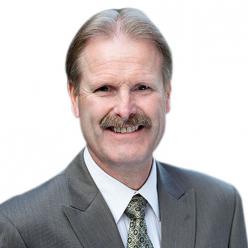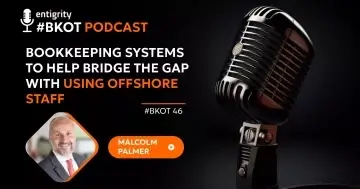This is the fifteenth episode of our series BKOT: Build a KickAss Offshore Team. The title of the video, as it suggests, 'How to successfully Integrate your Onshore & Offshore teams' with our panel experts. They'll be discussing in depth about some of the best practices like creating SOP helps create distinct lines of work responsibility and more such practices to have smooth work integration. Listen the podcast to know more.
#BKOT 15 BUILD A KICKASS OFFSHORE TEAM
HOW TO INTEGRATE ONSHORE TEAM AND OFFSHORE TEAM IN ACCOUNTING FIRMS
Hosted by:
Mike Goossen, Vice President, Entigrity Offshore Staffing
Guest:
Sia Kal, President, FY USA
Shawn Parikh, CEO, Entigrity Offshore Staffing
Ted Rosedale, Vice President, Entigrity Offshore Staffing
Mike: Well I'll just say welcome to everyone who's on the line with us. My name is Mike Goosen. I want to welcome you to how to build a kick-ass remote staff team. Today I am with Shawn Parikh with me, Ted Rosedale and Sia Kal all individuals who have some input and some idea about what it is to successfully integrate your on-site and offshore team together in a way that is most successful and so with that brief introduction I'll let who would like to jump in and kind of approach this topic to begin with here.
Sia: Thank you that you noticed me out of the crowd that's very encouraging all right so welcome everyone and thank you for the introduction Mike just delighted to be here with Shawn, Ted and of course you Mike so the topic for today is integrating your offshore team with your on-site team something that is a very important topic frankly and so everyone's got some good valuable information that hopefully will be of some use to all our attendees who are watching the program anyway let's get right into it, I would like to start with everyone who agrees with Shawn and mainly because well we were talking about the chairman of integrity offshore staffing so it just wouldn't make sense that we begin with anyone else other than the man himself the person who has seen it from both ends in terms of using an offshoring team but also have seen over the decades what has worked what hasn't worked so why don't you give us some basic structure of what if a firm is looking to either improve the way they integrate their offshore with their on-site team or they're even they don't have any offshore team they're thinking about it what kind of advice would you give them Shawn based on your experience please.
Shawn: Thank you Sia thank you everyone, thanks Ted, Thanks Mike for joining in today in our friday happy hour again well before Sia I talk about you know ways and means of kind of integrating one thing I want to mention is it's like one of those things you know your strength is your weakness so it is the people who because of which it can really integrate and it is only that people because of which it might not integrate sometimes we have faced failures in working with clients not that we have all success we had our fair share of failures too one of the reasons we have failed is because the two teams have not been able to integrate and the reason is people which are at the core of it and and the reason they would integrate which is very important is this people so that's in fact I remember this funny incident we had this client in Virginia and he has started with us around four or five months it was a very turbulent ride where very turbulent ride I mean she had a lady tax manager and that lady tax manager always complained you know this offshore staff is not doing well the processes are difficult etc, so she has all these complaints against us eventually that owner partner he was a really nice person he told me you know I cannot handle this I have my manager who works for me and she's not really happy and you know I can't challenge her at the end of the day I can request I can suggest and he gave up, three years later I discovered that tax manager lady has opened up her practice and she has three offshore staff working with us that's the story and what I later discovered from that lady itself and what I further discovered that gentleman who we lost as a client has closed his shop he retired.
Sia: So Shawn what do you think okay so that's very interesting that's a fascinating story by the way so what do you think happened when the gentleman had his firm and it didn't work with him and then his previous employee started his own business and it works in beautiful ways it was what I'm hearing what was the contrast between these two?
Shawn: Well one of the reasons when you sit on the owner as a partners chair your perspective changes sure that is one difference for sure but apart from that you know when this happened I went back and talked with my ex-client who left us and told him that you know you told me that this person is not comfortable with offshore staff and today she's our client I cannot name them but yeah and he sold firm for different reasons of course capacity and other competitive challenges was one and plus he wanted to retire so yeah I mean the reason for selling him was I would not i would not go on and say that it was because off offshore staffing no it could be, it could not be but more than that what was more funny is that same lady comes back and you know becomes our client and she has told me that anecdote, I did not remember even, he told me this so when you the perspective could be when you sit on the chair of owners and partner you understand the challenges and that's what my point is that as a firm when you work you know what the challenges are whether it is you know competitive pressure whether it is delivery whether it is workload whether it is you know so this is the challenges you go through so one of the things that when we implement we tell to engage with the team and tell them that you know keep give them that vision so that they buy in you know that these are the challenges that we are facing today.
Sia: Yes exactly that's a very good point buying is a good point and Ted as you're listening to Shawn share with us this crazy story about what a small world we live in anything that comes up in your experience that you like to share with our audience who are listening.
Ted: Yeah to expand on what Shawn said we've seen it firsthand I mean the biggest obstacle sometimes to making offshore staffing work could be the staff itself if there's any resistance to change in the practice if there's resistance to changing their process that's the that's the one pushback against offshore staffing but that could be resolved and the way that's typically resolved is with communication so when I speak to a client or a prospect the first thing I tell them is basically this isn't going to work unless communication is the one thing that you prioritize because communicating to your onshore staff what our firm of the future is going to look like and where we're going and what work is going to be outsourced or brought offshore if you could communicate and delegate properly within your firm it's not going to be an issue you know it's all about communicating what the message is what the vision is for a firm and what the whole purpose is in offshoring and that's what creates a happy firm letting your staff know your job's not in jeopardy nothing is cannibalizing what you're going to be doing this is going to enhance the firm, we're going to be able to scale we're going to save money you know you're gonna be able to be client facing speak to the clients today people in our office in India offshore they will handle all this back office work that's gonna free up your time so it's a very positive thing and I think just to get back to what Shawn said let your staff know what the position on offshore is and where we're going with this.
Sia: Are you daring to say that communication is key beyond just what it's needed in a the sanctity of a marriage because in most marriage counseling communication is the key thing that comes up but you are suggesting that beyond that Sia well look where else does it work really well with the offshore it's really marrying both teams right the offshore and onshore team and communication again is the key link between the two is what you're saying right.
Ted: Correct it's a collaborative effort and to make it work you just have to be very open communication but Shawn you know we've seen this yeah the only the only times this relationship ever fails between an onshore office and an offshore is when the management doesn't how to manage the staff or doesn't communicate to the people onshore you know what the relationship is so yeah it's completely communicating.
Shawn: Responsibility is on both the sides but yes the larger failures are from the onshore team, the reason is this, firm needs to first engage and involve the team in this process and bring them on the same page articulating them the vision so when you articulate the vision gives clarity that you know let us be real they have job insecurity, so when you clarify about the plan vision probably that insecurity will either mellow down or they will you know at least it will help.
Sia: It's the elephant in a room somebody needs to talk about it and who better than the partner right, so speaking of partners Mike you're you know you're being in a profession your a CPA yourself you've had your hands in this for quite some time for decades now when you are thinking about both of these worlds your offshore and your onshore team right. What have you experienced that you've seen that works well other than what you've heard Shawn and Ted cover over here.
Mike: Well I think one thing that I would echo with or support Ted in this conversation about communication is the one thing that leaders tend to forget is their intentions are secret I can be a greatest leader ever but if I intend to do something I don't communicate my intentions then that leaves everything I do up to interpretation and I assure you that most leaders are misinterpreted as to what they're doing because they don't explain their intentions they might be they have the best intentions for their staff they want to save their staff anxiety they want to reduce their staff stress level but if they don't communicate that and clarify their intentions then the staff simply misinterprets everything and disaster befalls them right the other thing to answer more specifically see your question is that we do a lot of work onboarding new staff locally I tell you when I hire a new person what do I do, I have their desk ready, I have their spot ready we got like a sign when they come in welcome to the firm we got their cards on the desk we've got supplies computers humming and we on board them and that's so critical that we onboard them in a way that they feel welcome well you got to kind of do as best you can the same way when you onboard a offshore staff and get the local staff to do that and that relationship that first week of that onboarding if you will of the offshore staff and how they relate with the onboarding or the local leaders will have a huge impact both on the offshore's feeling about being a part of your firm and your firm accepting them as well so if you have two different onboarding processes and not gonna work so I would encourage them to really think through okay I'm gonna start this person with my firm next tuesday, what am I gonna do and how am I gonna do it and that on boarding is critical.
Sia: Yeah I mean that's a very good point Mike because what you're really saying is that look what's good for your onshore team is good for your offshore team and so they're no different they're just located in some you know a different place but they have the same needs and those needs don't go away just because they're not physically in the same office with you so that's a very valid point you know when I look at integrating offshore and onshore team together it really boils down to the three c's for me are culture communication and collaboration right really those are the three things that holds this piece together and allows the two to integrate very well and out of the three - culture, communication, collaboration which one do you think is the glue that holds it all together communication exactly without communication you will know anything about their culture or would be able to properly communicate. What you understand without communication you will be able to collaborate well and when I think about these things guys I just think about look the number one enemy in any business it doesn't matter even if it's not an accounting firm this will apply to your clients your business clients if you're watching it's isolation, isolation is the enemy of the business now that isolation could be with the partners isolation could be with the onshore team with each individuals and isolation could be with your offshore team any type of isolation is an enemy of the business because what isolation does is it kills communication the very thing that all of us have have covered here so I wonder what your thoughts are on that Shawn what do you think about the 3C's of culture, communication and collaboration.
Shawn: Well I would add one more C to that which is changed so basically what happens is sometimes when you start offshoring or when you start expanding offshoring there is a little shock value associated with that to our to your existing team but if that is rightly communicated and that change management is handled correctly because definitely there is an element of change in terms of how you communicate, how you collaborate, how you know you have been interacting with your clients, how you have been interacting internally so this change management is very important because let's say if five team member we're doing 20 tasks each, now three tasks from each of these team members is being done by one offshore team member or two offshore team member right even though still other 16 tasks are being done there is still a mindset which anyone even I would have if I would have been a staff member in accounting firm that my job is going away, I am being replaced and what happens is see whenever whether it's a business or individual gets that feeling of being replaced there are two kinds of reaction first is resist the change and second is embrace the change I recall a very famous example here not very long ago but we used to tell you know a kodak moment what a kodak movement was basically a memory or a savior but today what kodak moment is called an example of how a film largest film company two three hundred years old got disappeared because of the digital cameras and phones. One of the fundamental reason that you know that they got extinct was that you know they never embraced the change because otherwise they were positioned to take on facebook and instagrams of the world they had you know so yeah they were actually thinking that by embracing this change they were going to destroy their business instead of thinking that this change will only add value to their business and get them ready for the next level, same applies to accounting firms same applies to the team working there so yeah if you don't embrace change sooner or later market will kind of catch up and play its role if you don't do that's the sad reality you have to accept and move.
Sia: Yeah Shawn very valid point you know changes is I don't know anyone who signs up for change that says hey I will love it if I can change from this nice comfortable predictable place I'm in to an unpredictable future where I have zero experience in and see where it goes you know one of my biggest complaints is I'm just gonna confess right now you know, it's just between the four of us right or four plus a million who's watching who knows you know one of my one of my biggest complaints is that our growth stops post-art education what I mean is that we go through an educational process we come out of it and we go through the most amount of change while we're in school but all of a sudden when we come out we are so seeking and by the way the only other change that is motivating people to move forward is money that's why people change jobs it's not because you know they may make excuses for what they're you know they're unhappy and this and that but it's only a few brave ones that actually stand up and say you know what I just don't enjoy what I do I'm making a lot of money but I would rather make less money and so why is this relevant is because offshore integrating offshoring and your onshoring team together it's not just a financial gain it's not just for financial reasons there's a human factor there that needs to be addressed and everything that Shawn you mentioned and Ted you've covered and Mike you pointed out points to the human factor you know that the one of the biggest things is culture in my opinion because you're dealing with a different culture so you got to set your expectation reset your expectations on both ends and that requires communication right so in terms of culture, what are some ideas Ted that you could share with our audience that you think of in terms of cultural integration of the two.
Ted: Right you know it's as simple it does intertwine with communication but you know it's about forming a relationship with the people you work with yeah they might be sitting thousands of miles away your office in India will be an extension of your team so you really have to get to know who you're working with because culturally and they might be in a different time zone they might have different holidays it's about getting to know the people you work with whether you sit down the hall from them or across the world so you know whether it's being on skype or zoom or via email there's different ways to get to understand the people you work with and what works for them and what doesn't and you know I don't like to generalize too much but this is about forming a relationship with the extension of your team and you have to get to know them and understand what they're all about and what drives them to be successful at work and you're here to help them and they're here to help your firm so that's what it's about communication getting to know your team and relationship.
Shawn: We have a client in Orlando and they are one of the largest outsource accounting firm in Orlando with probably 50 people team there are about five or six people here in our office in India and they shipped they got t-shirt this was before pandemic they got t-shirt made for that local team and then coffee mugs and some other goodies they shipped all the way from Orlando to India, I told them well the cost of shipping is much higher than the cost of the product, but no it's not about the money it's about what you said it's about the relationship whom you're working with you know sense of belongingness that we are a part of the same team we are working towards the common goal which is betterment of the business.
Sia: It's about investing in people right so Mike when you think about all the times that you have taken the time to intentionally invest in people you work with whether it's spending time with them and explaining things whether if it's a formal training whether if it's you know just being patient with them if nothing else right to give them the room for them to gain their experience what have you seen how has that what's been the how has that been coming to for fruition for you in your experience. Well the thing is that what let me make it a little more clear what I'm saying is that when you invest in people what do you get out of it, what have you been getting out of it doesn't matter offshore onshore wherever.
Mike: From a leadership perspective what people are looking for from their leaders and the way that they build trust with their team be it local or distant is that trust is built on compassion. Do you have compassion for those you lead it's built on your competence are you a competent leader that doesn't mean you have to know everything it just means that you have to be continually learning like you said earlier once just because you have a master's doesn't mean you have to stop learning CPA’s you know we're learning we have to do continued education constantly we're always learning new things and that demonstrates increasing competency so trust is built and the last part of that is the integrity do you have integrity do you really do what you say and so having integrity compassion and competence together will build trust locally and distant and by sharing that and by revealing yourself to your team wherever they may be as best as you can you're going to have a integrated workforce that's going to be on the same page.
Sia: Okay can I interrupt Mike I'm going to ask you a very very tough follow-up question are you ready for it here it goes here it goes; would that work in new zealand.
Mike: In Newzealand we work absolutely.
Sia: Okay hold up here's another question would it work and would it work in China?
Mike: Sure because I'm talking about the basic culture of trust and leadership.
Sia: Would it work in India?
Mike: Anywhere absolutely. The point you know you answer your question you know kind of a roundabout sort of way that the culture and the and the integration and the success is really largely depend upon the leader and how they treat and support people yeah you know you have to be supportive you have to be you have to have their back and if they know you have their back you're going to get results that are very high performance no matter where they are.
Sia: Yeah you know I remember a story of a particular partner who was having difficulty with their offshore team and just by chance just looking at the his facebook posts I came across in a private group I came across a comment that he was making that I don't understand these people and why are they taking so many days off work it seems like they're they have a holiday every other day and I just don't know why are they not working as hard it's just the culture just seems like they don't have it was a very derogatory comment right and it was given in a quote and quote safe private group but it exposed the attitude the perspective of that partner right even though they didn't quite express it that way out in public but internally if that is the way you view a another culture another team another there's different systems and processes in terms of there's different structure in the society in different parts of the world and they will be different undoubtedly with what we have here in the states so if you're not able to somehow reconcile with that reality then then we have bigger issues and you know what with that particular individual it was no surprise that we had issues not with just the offshore team or with the audience. Yeah any other I want to go ahead and wrap this up any last comments Shawn you want to go ahead.
Shawn: Well the comment last is I mean sometimes when you evolve it happens that some people you know fall off that path of success or growth or sustainability it happens I mean it's unfortunate but even when we grow sometimes it happens that you lost people and you never wanted to lose them during your course or on your path but people don't evolve and the only way you can move forward is this by getting away from them and then
you move forward so that's an unfortunate thing so we have seen results which where onshore staff team failed us and we have seen results where offshore staff team have been a dominating force and some of the onshore team because they they cannot change they have to leave that so this is what I want like to sum up.
Sia: Good points Shawn, thank you Ted any closing comments from you.
Ted: Yeah I guess I would end with you know offshore staffing is a solution for a firm with the right mindset you know and like I think we've all touched on it's just you know the management style of the leadership they have to communicate what the plan is for the firm and they have to understand the culture of the offshore staff and how to effectively integrate them into their firm and if you could communicate that this is a positive thing for your firm and you know this is the work that they're going to be handling specifically there it's going to be a very positive benefit for a firm it's going to help the firm grow and scale it's going to increase profitability. It's a great solution when you could do it the right way.
Sia: Yeah if you put the effort into it you will see the results absolutely. I'm going to make a few comments and I'll pass it over to you Mike for your closing arguments as they say right my just in closing I think that you know as we're talking discussing these things I just want to make sure I remind our audience that we'll dive deep into the areas of culture communication collaboration generally speaking for your team as a whole but also in terms of offshoring and a workshop format at our Accountable 2020 event coming november 12th and 13th you will see Shawn there you will see me there you'll see a lot of the other leaders of the industry going diving in deep into your operations and the business performance of your firm so if any of this topic that we just covered today interests you and you want to go a little bit deeper into it you'll get plenty of good information, practical tools and solutions that actually can apply to your firm in the accountable event at accountablefirms.com that's all I have thank you for your attention Mike it's yours.
Mike: Thank you thank you for the reminder of that event coming up and just wanted to close out today thanking everyone on the on the podcast today it's been great to have you I'm sure we'll see you all again real soon and just final thing I just want to remind folks that you know today is a solemn day in our country this is the day of September 11th 19 years ago our country had a terrible situation where we were brutally attacked by a group of people who just didn't care about human life and we remember those that were lost that day and we remember I guess we just remember those that were lost that day and then and just have this day as a sole reminder that life is precious and there's more to life than having a great CPA firm so it's just do well stay healthy and be safe out there and we'll look forward to seeing you next time have a great day take care everyone thank you thank you everybody.
Entigrity™ is a trusted offshore staffing partner to over 500+ accountants, CPAs and tax firms across the US and Canada. Our flexible and transparent hiring model gives helps firms of all sizes to hire staff for accounting, bookkeeping, tax preparation or any other task for 75% less cost. As a firm 'run by accountants, for the accountants', Entigrity captures the hiring needs of accounting firms most precisely, providing staff that works directly under your control and management, still you are left with least to worry about compliance, payroll taxes, overheads or any other benefits.





